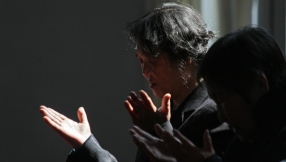US Congress Loosens Stem Cell Research Legislation despite Bush’s Veto Threat
On Tuesday, the US House of Representatives voted to approve the controversial federal funding for embryonic stem cell research in defiance of President George W. Bush’s presidential veto threat. President Bush has called the House bill "a mistake" in the midst of fear among pro-lifers who have called the success of the cloning of human embryos in the UK and Korea last week as "a global crisis".
The Senate bill passed by a 238-194 vote yesterday is sponsored by Senator Tom Harkin of Iowa and Senator Arlen Specter. It would lift Bush's 2001 restrictions on federal funding for new embryonic stem cell research.
Embryonic stem cell is yielded by performing therapeutic cloning. The process starts with the creation of an embryo in the laboratory by using the egg and sperm. Cloning is performed when the nucleus of the egg is replaced with desired DNA. The embryo will be stimulated to grow.
Stem cells can then be extracted from the embryo for further research and the embryo dies. These embryonic stem cells have the ability to develop into virtually any tissue in the body, and in theory, could be used to replace damaged cells in conditions such as Parkinson's disease and diabetes, meaning an alternative treatment to these diseases.
Prior to the Congress votes on the sensitive topic yesterday, the pro-life President Bush has renewed his opposition to embryonic stem cell research in a speech at the White House.
"We should not use public money to support the further destruction of human life," President Bush was quoted by AFP, "In the complex debate over embryonic stem-cell research, we must remember that real human lives are involved, both the lives of those with diseases that might find cures from this research and the lives of the embryos that will be destroyed in the process."
"This bill would take us across a critical ethical line by creating new incentives for the ongoing destruction of emerging human life," the President added. "Crossing this line would be a great mistake."
Last Friday, upon the breaking medical breakthrough achieved by South Korean scientists on the number of embryonic stem cell lines extracted from cloned human embryos, President Bush expressed his worry about the slippery slopes over the ethical values in the world as human cloning is becoming more advanced and prevalent.
In addition, he reaffirmed this determination to stop "the use of federal money, taxpayer’s money, to promote science which destroys life in order to save life" by using his presidential veto for the first time.
Bush in 2001 decided to allow continued central government financing of research on stem-cells taken from embryos before August 2001, but barred federal money for stem cell lines developed since then.
Surprisingly, according to the Associated Press, the medical promise of embryonic stem cell research prompted several House members who oppose abortion rights to vote yes yesterday.
"Who can say that prolonging a life is not pro-life?" said Rep. Jo Ann Emerson, R-Mo., who said she had a "perfect" pro-life record.
"Being pro-life also means fighting for policies that will eliminate pain and suffering," said Rep. James R. Langevin, D-R.I.
Another opinion from the pro-lifers said that adult stem cells can perform the same function as embryonic stem cells in the research. They argued that umbilical cord stem cells or tissues from adults offer hope enough to avoid the need to destroy embryos, which they say contain a human life.













